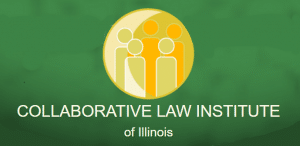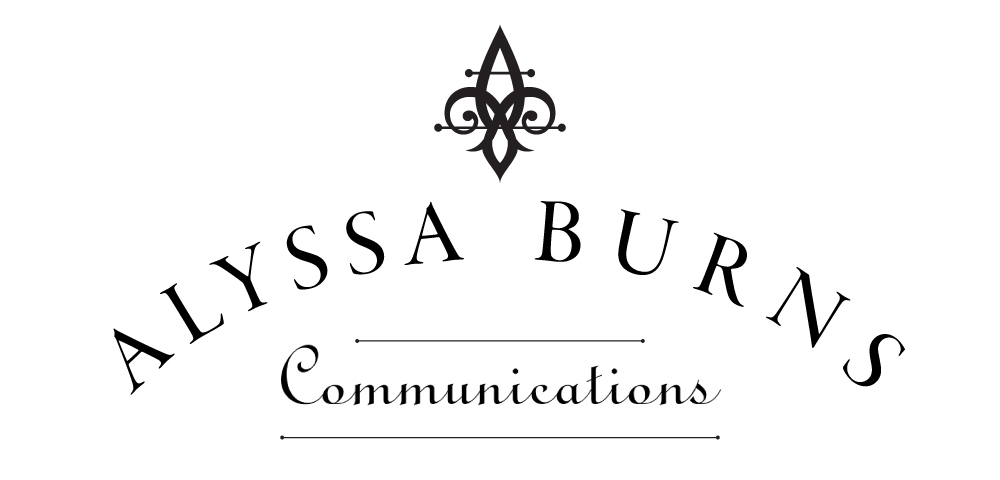Case Study: How Alyssa Burns Communications Successfully Increased Public Awareness and Educated the General Public for the Collaborative Law Institute of Illinois (CLII)
 Situation:
Situation:
The Collaborative Law Institute of Illinois (CLII) approached Alyssa Burns Communications to increase public awareness of the organization and educate the general public on the option of collaborative divorce.
Challenge:
The Collaborative Law Institute of Illinois, established in 1990, had not enlisted any marketing, communications or public relations expertise to educate their target audience about who they are, who they serve and specifically how the public can benefit from collaborative divorce. CLII did not have any social media presence, lacked clear messaging, and had very limited awareness outside of the organization.
Solution:
Alyssa Burns Communications clarified CLII’s mission statement, developed overall messaging, initiated a Social Media Training course for CLII members, established an online presence, created story ideas, developed website content and initiated Member Profiles to post on social media. Alyssa Burns Communications also come up with the news angle to write and disseminate the organization’s first press release in conjunction with Father’s Day. (See release below)
Results:
Press Release: “Collaborative Divorce Option Recommended This Father’s Day for Divorced Dads to Stay Close to Their Children” issued on June 16, 2015, garnered 63,613 impressions and 1,826 reads. Total online pickup was 239 outlets, with a potential audience of 217,617,800. Media coverage included:
- Television affiliates: ABC, NBC affiliates in areas including Decatur, Springfield, and Champaign; also major markets including San Diego, Honolulu, Atlanta
- Major Newspapers: Daily Herald, Rockford Register Star, Boston Globe, Star Tribune, Miami Herald, LA Daily News, Chicago Tribune
- Online outlets: International Business Times, Press Enterprise, onenewspage.com, Market Intelligence Center, Digital Media Wire, bizwireexpress.com, Google, Yahoo Chicago Parent Patch.com, WomensDivorce.com
Online Media Presence: Created a CLII Facebook page, Twitter account, LinkedIn Company Page, and Google+ page, with an average of 15 percent increase in user interaction month to month, when the year prior CLII didn’t exist on social media
Member Profiles: Over the course of one year, 12 CLII Board Member Profiles were posted on www.collablawil.org to further illustrate the expertise represented by the group.
Press Release

COLLABORATIVE DIVORCE OPTION RECOMMENDED THIS FATHER’S DAY FOR DIVORCED DADS TO STAY CLOSE TO THEIR CHILDREN
Research has repeatedly shown that fathers, divorced or otherwise, who maintain a strong, meaningful and parental relationship with their children have a positive impact on their kids’ lives. According to the Collaborative Law Institute of Illinois, one of the ways to address a disconnection between divorced fathers and their children is through the process of Collaborative Divorce.
Chicago, IL (PRWEB) June 16, 2015 – Father’s Day is a time to affirm the importance of fathers in our families. Whether divorced or married, fathers today want to be more than providers and disciplinarians, and be actively engaged in their children’s daily lives and interests. Research has repeatedly shown that fathers, divorced or otherwise, who maintain a strong, meaningful and parental relationship with their children have a positive impact on their kids’ lives. Sadly, research also shows that highly contested, litigated divorce cases often result in less father-child interaction than those involving a more amicable resolution. One of the ways to address a disconnection between divorced fathers and their children is through the process of Collaborative Divorce.
Collaborative Divorce uses specially trained lawyers, mental health professionals, and financial advisors to help divorcing spouses reach an amicable agreement with privacy and respect. The Collaborative Process aims to solve problems jointly, prevent a court battle, and when there are children, make them a priority. It prepares families for life after divorce—and paves the way for kids to have the strong, positive relationships with their fathers that they need.
“The less contentious the divorce, the more likely it is that fathers will stay involved in their children’s lives,” says Carroll Cradock, Ph.D., Child Specialist and Clinical Psychologist practicing in Chicago. “Post-divorce parental conflict is significantly related to a father’s disengagement from his children, something that is not good for the well-being of children or their fathers. However, Collaborative Divorce provides a way to help divorced parents have healthier kids, by promoting a more cooperative relationship between them as parents.”
Collaborative Divorce has other benefits as well. Because Collaborative Divorce helps divorcing parents maintain a more civilized relationship than a traditional, litigated divorce, fathers who use this process are better able to maintain good relationships with their children after divorce. Since research has repeatedly shown that fathers who feel like their divorce process was fair, and who are more engaged with their children, are more likely to pay child support, mothers benefit too.
Karen Covy, a Chicago divorce attorney, mediator, and educator, agrees. “One of the issues with traditional litigated divorce is that the justice system pits the husband against the wife, and vice versa,” she states. “Things rarely turn out the way people initially think they will,” she continues. “That’s why I strongly believe Collaborative Divorce is a better option. It instills a level of cooperation that the court system, just by its nature, tends to destroy.”
About Collaborative Divorce
Collaborative Divorce is a legal divorce process designed to empower spouses going through a divorce with the information, resources and support they need to restructure their family in the healthiest, least contentious way. Its goal is to help spouses navigate the difficulties of separation and divorce in a supportive, sensible, considerate and constructive way, with the least amount of emotional damage, financial loss, and family discord.
Karen Covy, J.D. is an attorney and author of When Happily Ever After Ends: How to Survive Your Divorce Emotionally, Financially, and Legally; Carroll Cradock, Ph.D. is a clinical psychologist and President, Collaborative Law Institute of Illinois.
###
For the original version on PRWeb visit: http://www.prweb.com/releases/2015/06/prweb12789390.htm
